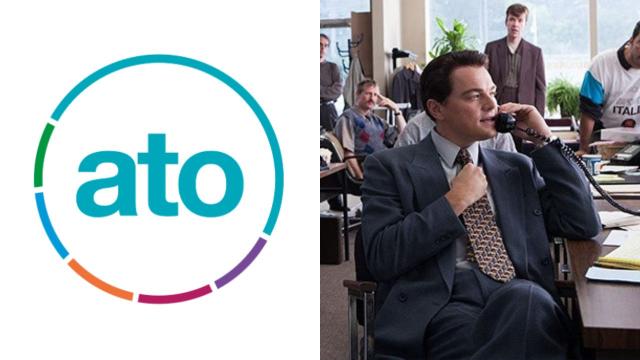The end of the financial year is coming up and tax season is likely to look a little different this year. From the shifting nature of working from home claims to superannuation changes, there’s a lot to keep in mind in 2024, and a “copy and paste” job of your last tax claim will not cut it.
Here are the key points to keep in mind for the 2024 tax season.
Table of contents
What is the ATO cracking down on this year?
Last year, the Australian Taxation Office (ATO) kept a close eye on things like rental property deductions, work-related expenses and Capital Gains tax. Will it be a similar story this year? We got some predictions from H&R Block’s Director of Tax Communications, Mark Chapman.
Work-related expenses
Chapman expects that work-related expenses will once again be on the ATO’s compliance list, saying “The ATO believes that work-related expenses claims are the biggest element in that ‘tax gap’ and have signalled that they’ll be looking closely at these deductions this year.”
This includes keeping an eye on things like:
- Deductions for working from home expenses. The way these could be claimed changed last year, with the introduction of a new 67 cents per hour fixed rate and enhanced substantiation requirements.
- Similarly, in relation to working from home, deductions for “occupation” costs like rent, rates and mortgage interest are under the spotlight as they are not allowable unless you’re actually running a business from home.
- Mobile phone and internet costs, with a particular focus on people who are claiming the whole (or a substantial part) of the bill for their personal mobile as work-related and people who are potentially “double dipping” (ie, claiming the 67 cents per hour working from home rate – which includes an element for mobile phone costs – as well as claiming their mobile costs separately).
- Claims for work-related clothing, dry cleaning and laundry expenses
- Overtime meal claims
- Union fees and subscriptions
- Motor vehicle claims where taxpayers take advantage of the 85 cent per kilometre flat rate available for journeys up to 5,000kms (the ATO is concerned that too many taxpayers are automatically claiming the 5,000km limit regardless of the actual amount of travel)
Property
Property is another thing expected to return to the ATO’s watch list in 2024. Chapman said the focus is on “people who make deduction claims in relation to investment properties and holiday homes. The ATO recently announced that in a series of audits, they found errors in 90% of returns reviewed.”
Expect them to be looking at:
- Excessive interest expense claims, such as where property owners have tried to claim borrowing costs on the family home as well as their rental property.
- Incorrect apportionment of rental income and expenses between owners, such as where deductions on a jointly owned property are claimed by the owner with the higher taxable income, rather than jointly.
- Holiday homes that are not genuinely available for rent. Rental property owners should only claim for the periods the property is rented out or is genuinely available for rent. Periods of personal use can’t be claimed.
- Incorrect claims for newly purchased rental properties. The costs to repair damage and defects existing at the time of purchase or the costs of renovation cannot be claimed immediately. These costs are deductible instead over a number of years.
Chapman recommends that, to avoid being called out for any of the above, property owners keep good records.
Sharing Economy
The gig economy is continuing to thrive in Australia and its more important than ever for those working for services like Uber or Airtasker to properly declare their profits. Chapman warned that the ATO is now receiving reports from many platforms (such as Uber) that it can use to highlight any data mismatches. The same goes for those who rent out property through Airbnb.
Cryptocurrency
Investments in cryptocurrencies are still under scrutiny by the ATO in 2024.
“Increasing numbers of taxpayers are jumping on the bandwagon and the ATO believes that some of them are failing to declare the profits (and in some cases the losses) they are making on their investments. Remember, investing in cryptocurrencies can give rise to capital gains tax (CGT) on profits. Traders can be taxed on their profits as business income,” Chapman said.
As per Chapman’s sources, the ATO estimates that there are between 500,000 to one million Australians that have invested in crypto-assets, so there’s plenty of people who should keep an eye on this aspect in their 2024 tax returns.
Shares
Those investing in shares also need to ensure they are filing these correctly. If you sell off any shares as an investor (not a trader) you will normally need to pay Capital Gains Tax on any profits.
“If you dabble regularly in buying and selling shares, you could be deemed a share trader, rather than a share investor. If that’s the case, the tax you pay could look very different,” Chapman explained.
To be considered a share trader you may be someone with lots of transactions, a clear profit making intent and you run activities in a business-like manner (eg. you have a well-developed business plan and properly maintained books/records).
“Someone who buys and sells shares as part of a business will treat those shares as trading stock, and gains or losses on them will be taxed as ordinary income (effectively as business profits) rather than capital gains,” Chapman continued. “You can see from the above that there is ample opportunity to get the tax treatment wrong or mischaracterise income in a way that gives you a tax advantage, hence the ATO interest in this area.”
For additional details on what you can and can’t claim, check out the ATO’s occupation and industry guides here. Keep up to date with more info this tax time here.
Lead Image Credit: ATO/Paramount Pictures

Leave a Reply
You must be logged in to post a comment.